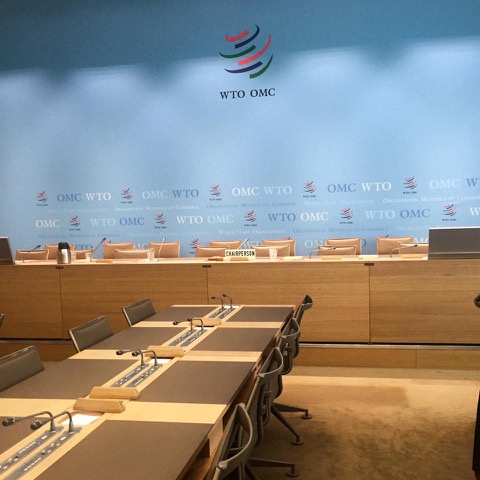Last Day of the WTO Appellate Body

As of December 11, 2019, the membership of the World Trade Organization (WTO) Appellate Body will fall to less than three for the first time since the mechanism was established in 1995. This will not mean the end of a successful dispute settlement system (nor is it the end of the WTO), but will mean the impossibility of making further appeals to the Appellate Body and it is unclear whether they will finish the current cases.
The rules governing the Appellate Body state that at least three members are required to keep the appeal system in place. Without this minimum number, no appeal will be possible, and the immediate effect is that the dispute settlement system will no longer be fully operational from this December.
This scenario is, to a large extent, caused by the United States blocking the appointment of new members to open positions in the Appellate Body after the end of the mandate of the individuals who held them until then. Faced with the blockage of the system, several WTO Members have presented alternatives to keep the system working and have demonstrated willingness to address the concerns presented by the United States administration.
What is going to happen from December 11 is that Members will not be able to rely on a binding and 2-stage dispute settlement system, and the idea of a rules based multilateral trading system is being largely challenged. Padideh Alai in her article discussed the “vital importance” of the WTO Appellate Body to the future of international law and order.
Of the four possible scenarios after December 10, 2019, detailed very clearly in an article written by Joost Pauwelyn, only one maintains an independent, binding, dual-instance dispute settlement system based on current WTO rules. This is a provisional appeal system through arbitration based on Article 25 of the DSU, which has been defended by the European Union. .
The European proposal takes the form of a bilateral agreement, to be signed between the EU and another WTO Member, which binds the parties to an arbitration system that could be applied as a second instance (post-panel report) in any future dispute between them. Additionally, the mechanism could be applied to decisions pending in disputes in which they are active parties.
The suggestion is that the appeal through arbitration should consist of three arbitrators chosen by the WTO Director-General from a list of former AB members, who would be supported by the AB Secretariat for administrative and legal support. The bottom line of this option is that the arbitrators' decisions regarding the panel report at stake would be considered final and would be subject to the same surveillance, compensation and retaliation mechanisms that are currently applicable to AB reports.
The other possible options are all subject to problems which, in fact, mean the end of the WTO Members' obligation to comply with decisions given by a second instance or even the absence of a second functional instance.
In any case, it is a sad day for the multilateral trading system. The existence of a well-functioning dispute settlement system has largely reduced uncertainties and encouraged trade and economic policymaking of WTO Members. Unfortunately, as of this week we may be going back to GATT times and to a system that is largely governed by dynamics of power between countries, and where the rules play an (almost) insignificant role.
Renata Vargas Amaral
Director, Summer Program on U.S. and International Trade Law and Policy
“[I]t is a sad day for the multilateral trading system. … [A]s of this week we may be going back to GATT times and to a system that is largely governed by dynamics of power between countries.”
Renata Vargas Amaral